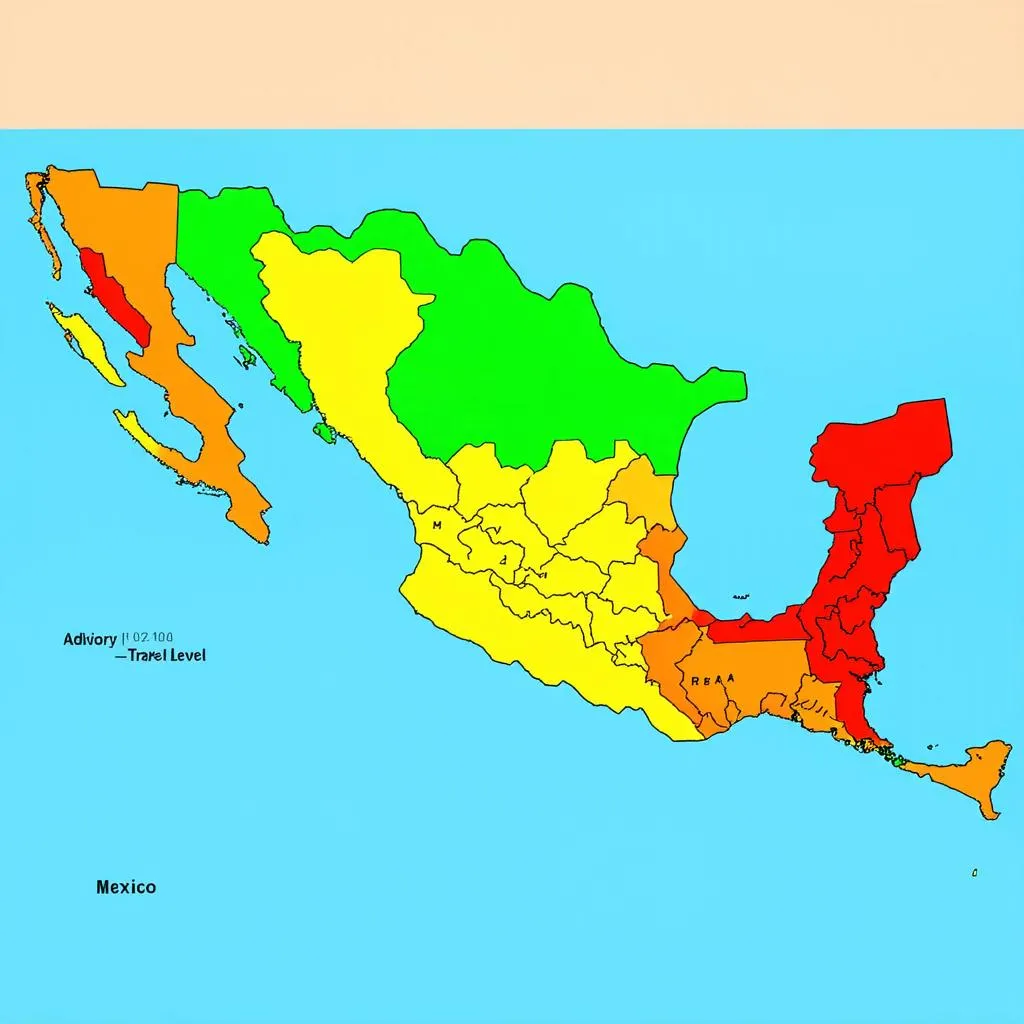Planning a trip to Mexico? The land of ancient ruins, vibrant culture, and stunning beaches certainly beckons! But before you pack your bags and grab your passport, it’s essential to ask: “Is There A Travel Advisory To Mexico?”. The answer, like most things travel-related, is not a simple yes or no.
Understanding Travel Advisories
Let’s start by demystifying travel advisories. They aren’t meant to scare you off but rather to provide travelers with the most up-to-date information on safety and security conditions in a specific country. Issued by governments (like the US Department of State or the UK Foreign Office), they use a numbered system to indicate the level of caution advised:
- Level 1: Exercise Normal Precautions: This is the lowest level, indicating a relatively safe destination.
- Level 2: Exercise Increased Caution: Be more aware of your surroundings and potential risks.
- Level 3: Reconsider Travel: This suggests high-risk situations exist that could impact your safety.
- Level 4: Do Not Travel: This is the strongest caution, indicating a severe threat to safety and security.
So, What About Mexico?
Mexico, like many countries, doesn’t have a blanket travel advisory. Instead, advisories are issued on a state-by-state basis. This means certain areas might be under a Level 2 advisory, while others remain at Level 1.
For example, you might find that popular tourist destinations like Cancun and Riviera Maya generally have lower advisory levels compared to some areas bordering other countries. That being said, even in areas with lower levels, it’s crucial to stay informed about local conditions and exercise caution.
How to Check for Travel Advisories to Mexico:
Before you book your trip:
- Consult Your Government’s Website: Visit your home country’s official travel advisory website (e.g., travel.state.gov for US citizens).
- Search by Specific State: Look up the specific state in Mexico you plan to visit.
- Sign Up for Alerts: Register your trip with your embassy or consulate and opt-in for email alerts in case the advisory level changes.
Tips for Traveling Safely in Mexico
No matter where you’re headed in Mexico, these safety tips will always be helpful:
- Stay Informed: Read up on local news and stay aware of your surroundings.
- Avoid Risky Areas: Steer clear of areas known for high crime rates. Your government’s travel advisory will often highlight these.
- Don’t Flash Cash or Expensive Jewelry: Be mindful of your belongings and avoid attracting unwanted attention.
- Use Reliable Transportation: Opt for reputable taxi companies or ride-sharing services.
- Learn Basic Spanish: Even a few phrases can go a long way in communicating with locals.
- Respect Local Customs: Familiarize yourself with Mexican customs and etiquette to avoid any unintentional offense.
Planning Your Trip
Now that you’re informed about safety, let’s talk about planning! Check out these resources on TRAVELCAR.edu.vn for more tips:
- Is it Safe to Travel to Puerto Vallarta Right Now?: [Link to the article]
- How to Travel to Mexico Safely: [Link to the article]
 Mexico Travel Advisory Map
Mexico Travel Advisory Map
Common Questions About Traveling to Mexico:
Is it safe to drink the water?
Generally, it’s best to stick to bottled water in Mexico.
What about the food?
Mexican cuisine is delicious! Just be sure to eat at reputable establishments and start with milder dishes if you’re not used to spicy food.
Do I need travel insurance?
Yes, travel insurance is always recommended. It can cover medical emergencies, trip cancellations, and other unexpected events.
Embrace the Adventure!
While it’s important to be aware of potential risks, don’t let concerns overshadow the incredible experiences Mexico has to offer. With proper planning and a sense of adventure, you’re bound to have an unforgettable journey.
 Ancient Mexican Pyramid at Sunset
Ancient Mexican Pyramid at Sunset
This article is for informational purposes only and should not be considered professional travel advice. Always consult official government sources for the most up-to-date travel advisories.
